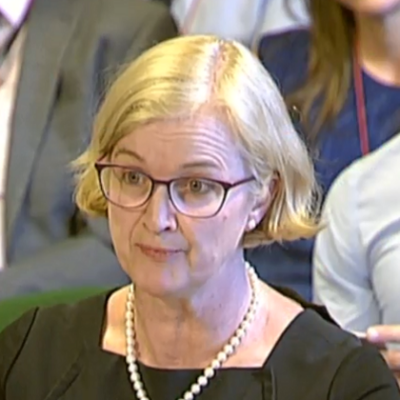New government-funded curriculum resources must be used “thoughtfully” by schools and not “assembled as a pick and mix”, the chief inspector of Ofsted has warned.
Amanda Spielman told the Schools and Academies Show today that content provided by a new arms-length body proposed in the recent schools white paper should also “build on” and “compliment” Ofsted’s own subject research reviews.
The government has announced it will turn the Oak National Academy into a new arms-length curriculum body, offering free, adaptable digital curriculum resources and video lessons, free for all teachers.
Spielman said the new content “should help schools adopt high-quality curriculums”, and acknowledged some schools “don’t have the time, the resource to develop their own curriculum and lesson plans”.
But she warned that “too often we do see curriculums assembled as a pick and mix, rather than having knowledge build coherently on knowledge”.

She said schools that used Oak resources “will need to do so thoughtfully, planning what they want to teach and how they want to sequence it, which may often be the sequence suggested by Oak, while of course being prepared to adapt their classroom teaching in response to pupils’ learning”.
“Quality curriculum isn’t just about the intent, a great curriculum needs to be brought to life with great teaching.”
Spielman added that Ofsted’s research reviews had had “huge take-up, which I think shows how interested all of you are in designing great curriculums”.
“New resources from Oak should help build on these reviews and should compliment them. I think they’ll be particularly helpful for schools with more limited curriculum capacity – to help them move in the right direction.”
Don’t ‘unnecessarily’ label pupils
The chief inspector also used her speech to warn against the “unnecessarily” labelling of pupils, and warned schools were sometimes too “quick” to take children out of normal lessons when they fall behind.
“We need to be careful not to label unnecessarily, both children and adults respond to labels. Negative labels can lead to negative perceptions and lower expectations.
“I’m dismayed actually how often I hear children referred to by their free school meal eligibility or as pupil premium children. Children are children. Some need some extra help and some don’t, regardless of the labels we’ve stuck to them.”
She said “most children” who fall behind in school “won’t need a label, and their teachers will support them to catch-up in the normal course of lessons”.
“There’s nowhere better for most children to be than in their normal classroom with teachers who know them.”
She said she was “pleased” the white paper recognised that the “first response to children falling behind is to rely on the skill of the classroom teacher”.
“We’re sometimes very quick to leap to an intervention and sometimes one that takes the child out of their normal lessons.
“But for many this will not be the right thing to do.”

















Glad to see that excellent teaching and the need for great teachers is identified as key to pupils’ success. Pay them!